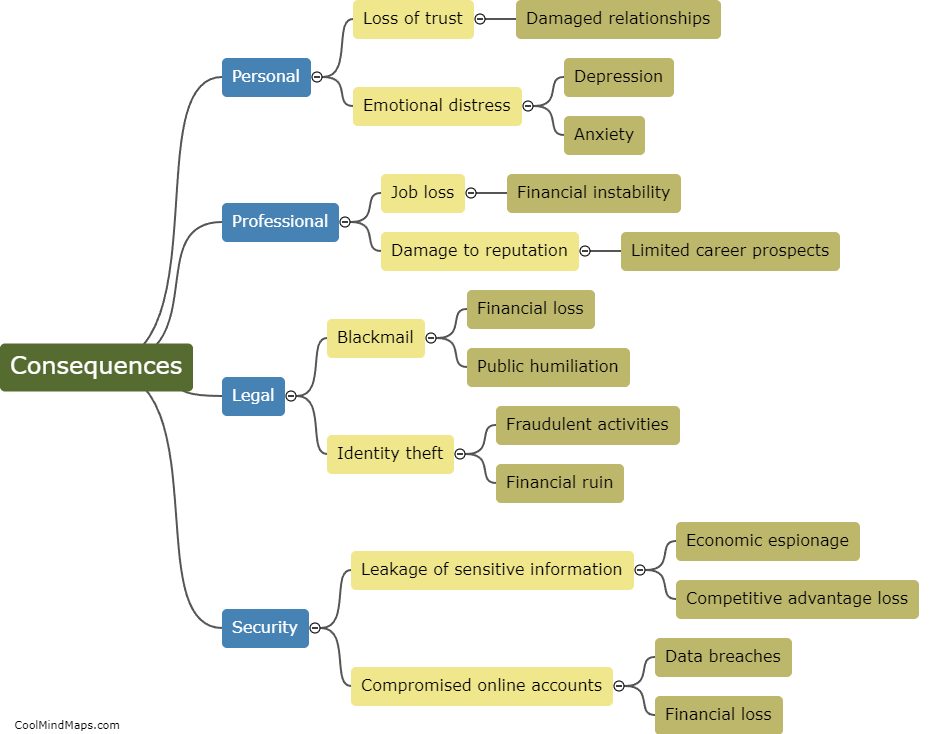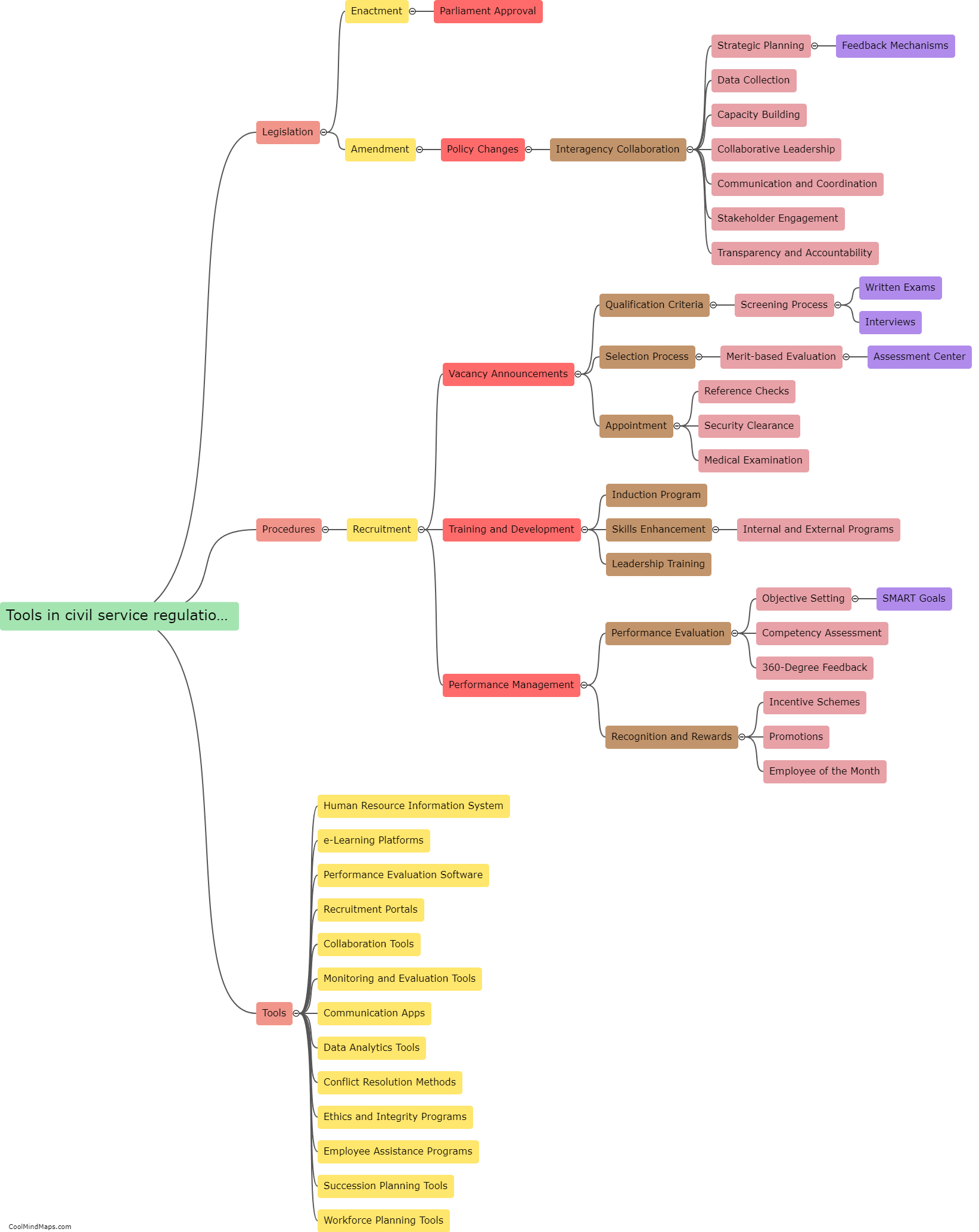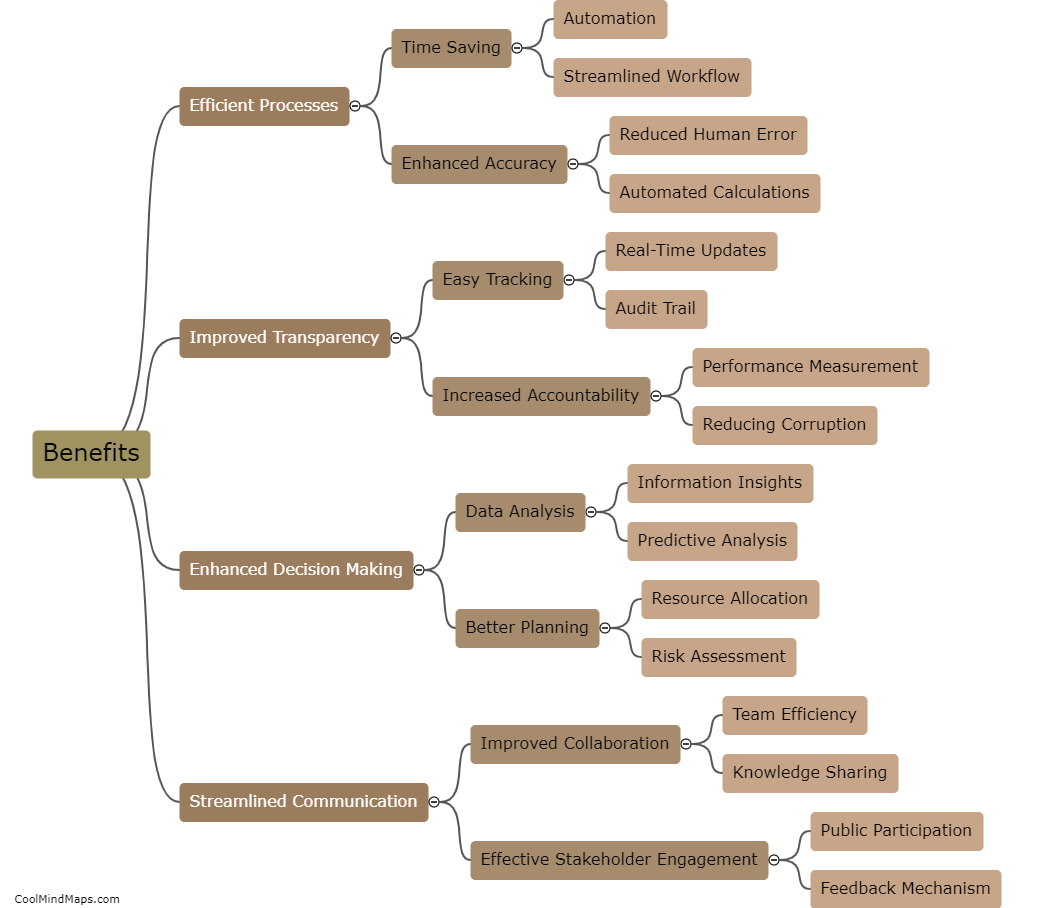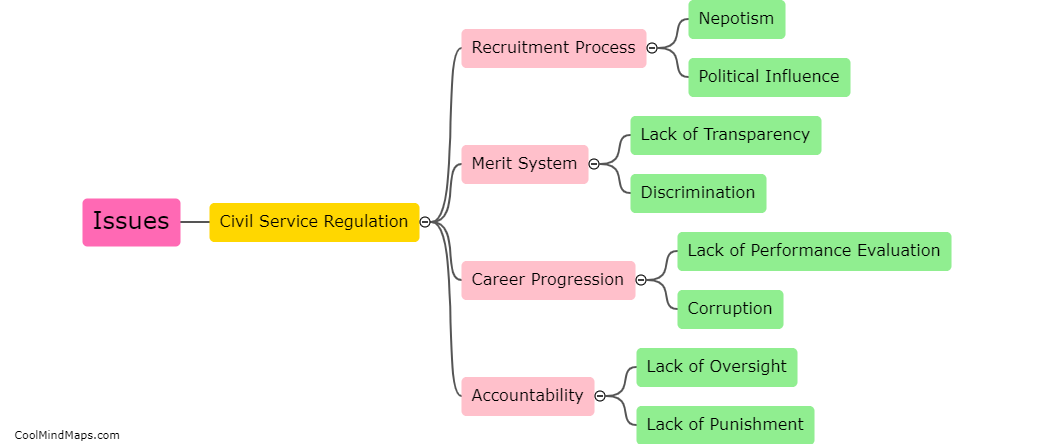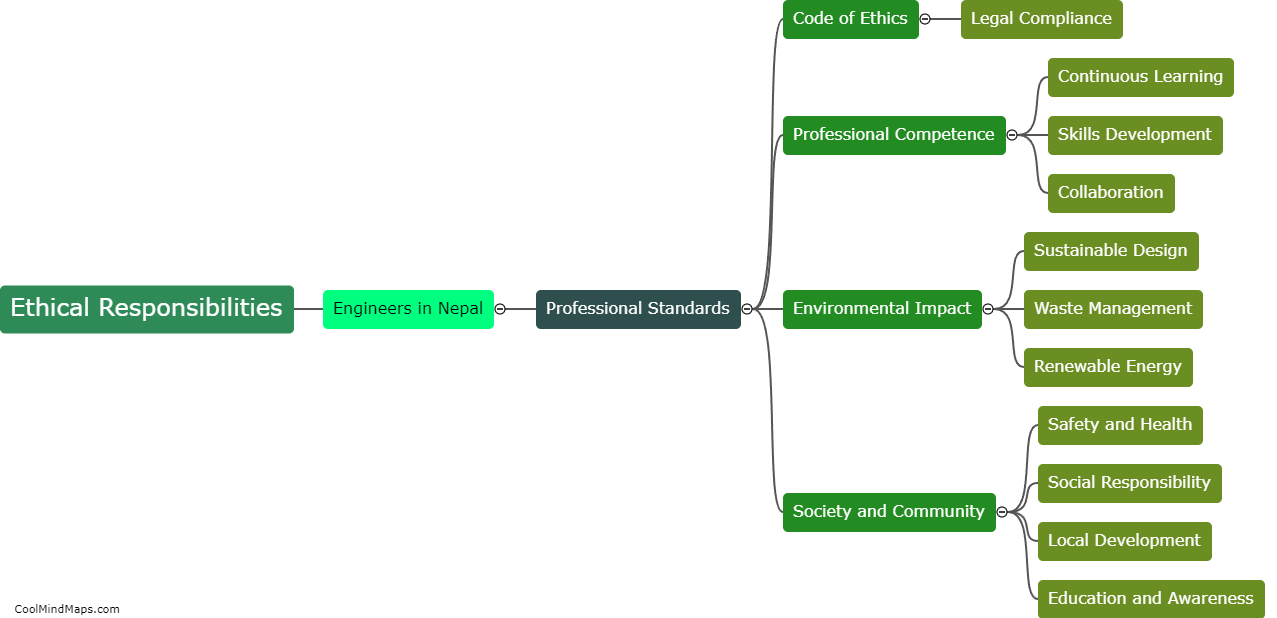What are the challenges in implementing the reforms in civil service regulation?
Implementing reforms in civil service regulation can be a challenging task due to various factors. One of the primary challenges is resistance from existing bureaucratic structures and officials who may be resistant to change or view the reforms as a threat to their power or privileges. Additionally, limited financial resources and inadequate technical expertise may hinder the effective implementation of reforms. Political interference and lack of political will to enforce the regulations can further impede the progress. Furthermore, ensuring transparency and accountability in the selection process, promoting a merit-based system, and combating corruption are key challenges in implementing these reforms. Overcoming these challenges requires strong leadership, adequate resources, stakeholder engagement, and a robust monitoring and evaluation mechanism.

This mind map was published on 26 November 2023 and has been viewed 107 times.


